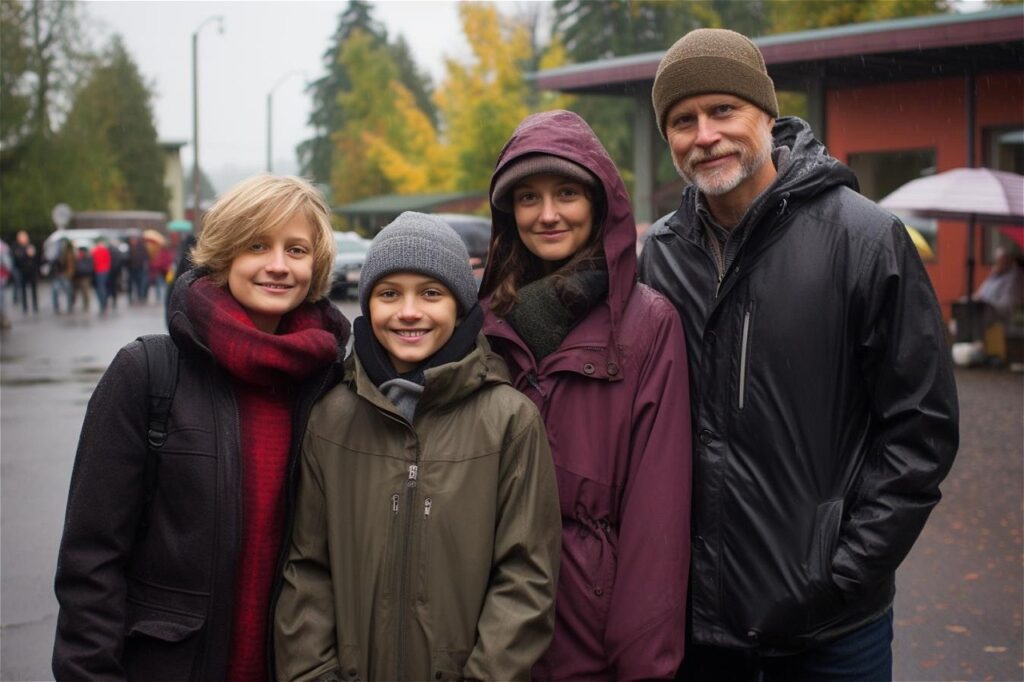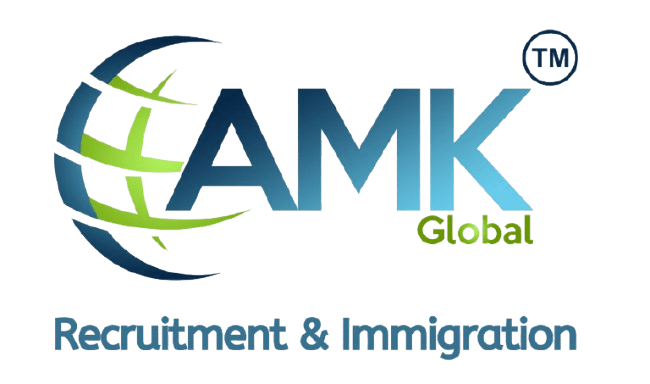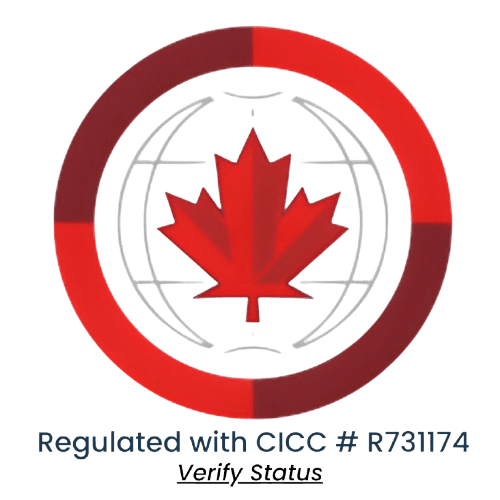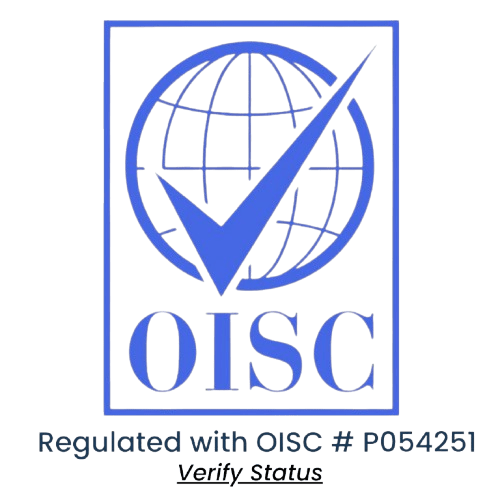Introduction
Canada places great emphasis on family reunification through its immigration policies, offering the Family Sponsorship Program as a key avenue for permanent residents (PRs) and citizens to bring their loved ones to Canada. This program allows Canadians to sponsor close family members to live, work, and study in Canada as permanent residents. The Family Sponsorship Program is integral to maintaining family unity and supporting Canada’s commitment to immigration and inclusivity.
This article delves into the Family Sponsorship Program for Canada PR, focusing on eligibility, the application process, and the benefits of keeping families together through this supportive system.
Key Takeaways
- Family Sponsorship allows Canadian citizens and PR holders to sponsor close relatives for permanent residency.
- Eligible family members include spouses, common-law partners, dependent children, and parents or grandparents.
- Sponsors must meet income requirements and agree to financially support the sponsored person for a designated period.
- Spousal sponsorship is a fast-tracked process with high priority in immigration processing.
- Sponsors take on financial responsibility if the sponsored family member cannot support themselves.
What is Family Sponsorship for Canada PR?
Family Sponsorship is a program within Canada’s immigration system that allows Canadian citizens and PR holders to reunite with family members by sponsoring them for permanent residency. The program is designed to help maintain strong family ties and support family reunification.
Family members who receive permanent residency through this program can live, work, and study in Canada. Sponsorship is available for various relationships, including spouses, common-law partners, dependent children, and parents. Sponsored individuals are granted all the benefits of PR, including access to healthcare and social services.
Who Can Sponsor a Family Member for Canada PR?
To sponsor a family member, the sponsor must meet certain eligibility criteria. The sponsor must:
- Be a Canadian citizen or permanent resident.
- Be at least 18 years old.
- Not be receiving social assistance (except for disability support).
- Demonstrate sufficient income or financial means to support the sponsored person.
Sponsor Responsibilities:
The sponsor must commit to financially supporting the family member for a designated period, depending on the relationship. This support agreement ensures that the sponsored family member will not rely on social assistance. For example:
- Spouse or partner: Financial support for 3 years.
- Dependent children: Financial support for 10 years or until they turn 25.
- Parents and grandparents: Financial support for 20 years.
Certain circumstances, such as the sponsor being previously sponsored for PR within the last 5 years, may render a person ineligible to sponsor.
Who Can Be Sponsored Under Family Sponsorship?
Canada’s Family Sponsorship program allows specific family members to be sponsored for permanent residency. The main eligible family members include:
Spouse or Common-law Partner
- Must be legally married or have lived together in a conjugal relationship for at least one year.
- Includes same-sex partners.
Dependent Children
- Children under the age of 22 who are not married or in a common-law relationship.
- If a child is over 22 but is financially dependent due to physical or mental conditions, they may still qualify as dependents.
Parents and Grandparents

Sponsoring parents and grandparents requires applying through the Parents and Grandparents Program (PGP), which is lottery-based. This stream has limited intake each year.
Other Eligible Relatives
In rare cases, individuals such as orphaned siblings, nieces, or grandchildren under the age of 18 may be sponsored if they meet specific conditions.
Inland vs. Outland Sponsorship for Spouses
- Inland Sponsorship: When the spouse is already in Canada, the sponsorship is processed from within the country. Inland applicants may be eligible for an open work permit during processing.
- Outland Sponsorship: For spouses living outside Canada, the process is handled through an overseas visa office. This option allows the spouse to continue living abroad while the application is processed.
Spousal and Partner Sponsorship: Fast-Tracked and High Priority
Spousal and partner sponsorships are a high priority for Canada’s immigration system. The government aims to reunite families as quickly as possible, which is why spousal sponsorship applications are often fast-tracked.
Two Types of Spousal Sponsorship:
- Inland Sponsorship: When the sponsored spouse or partner is living in Canada. Applicants may remain in Canada and apply for an open work permit while waiting for their PR decision.
- Outland Sponsorship: When the sponsored spouse is living abroad. The application is processed through the visa office in their country of residence.
Spousal sponsorship applications typically take around 12 months to process, making it one of the faster immigration processes in Canada.
How to Apply for Family Sponsorship: Step-by-Step Guide
Sponsoring a family member for permanent residency involves several steps:
Step 1: Check Eligibility
Ensure that both the sponsor and the sponsored family member meet all eligibility requirements, including age, relationship, and financial criteria.
Step 2: Collect Required Documents
Gather necessary documents, such as:
- Identification (passports, birth certificates).
- Proof of relationship (e.g., marriage certificates, photographs, chat logs for common-law partners).
Step 3: Submit Sponsorship Application
Complete the application and submit it online or via paper forms to Immigration, Refugees and Citizenship Canada (IRCC).
Pay the required fees, which include the sponsorship fee, processing fee, and right of permanent residence fee.
Step 4: Wait for Processing
Processing times vary, depending on the relationship and country of residence. Spousal sponsorships generally take about 12 months. IRCC may request additional documents during this time.
Step 5: Receive Decision and PR Card
Once approved, the sponsored family member will receive permanent residency and later a PR card.
Financial Requirements for Sponsors
Sponsors must meet certain financial requirements, particularly when sponsoring parents or grandparents.
Income Requirements
Sponsors must meet the Minimum Necessary Income (MNI) to prove they can support the sponsored family member. This is especially important for parents and grandparents, where the sponsor’s income for the past three years is evaluated.
Sponsorship Agreement
The sponsor must sign an agreement promising to support the sponsored family member financially for a specific period:
- Spouses and common-law partners: 3 years.
- Parents and grandparents: 20 years.
For spousal sponsorship, there are no specific income thresholds, but the sponsor must demonstrate the ability to support the spouse financially.
Documents Required for Family Sponsorship
A thorough application package includes several essential documents:
- Proof of Canadian citizenship or PR status for the sponsor (e.g., PR card, citizenship certificate).
- Proof of relationship (e.g., marriage certificate, adoption papers, birth certificates).
- Financial documents such as tax returns and pay stubs, especially for parent and grandparent sponsorship.
- Proof of relationship for spousal sponsorship, which could include joint bank accounts, travel itineraries, photos, and communication records.
- For parent and grandparent sponsorship, additional documents like medical exams and police certificates may be required.
Common Challenges and Mistakes in Family Sponsorship Applications

Many applications are delayed or rejected due to common errors. Key challenges include:
- Incomplete applications: Missing documents or incorrect forms can lead to delays.
- Insufficient proof of relationship: Especially in spousal sponsorship cases, failing to provide convincing evidence of a genuine relationship can result in refusal.
- Financial ineligibility: Sponsors must meet income requirements, particularly when sponsoring parents and grandparents.
To overcome these challenges, ensure all documents are complete, maintain detailed records of your relationship, and, if necessary, consult an immigration lawyer.
How Long Does Family Sponsorship Take?
Processing times for family sponsorship applications depend on the relationship and location:
- Spousal Sponsorship: Typically processed within 12 months.
- Dependent Child Sponsorship: Takes around 6-12 months.
- Parent and Grandparent Sponsorship: This process can take 2-3 years and operates through a lottery system.
Processing times may be extended due to missing documents, background checks, or medical exams.
FAQs about Family Sponsorship for Canada PR
How much does it cost to sponsor a family member for Canada PR?
Application fees generally range from CAD 1,050 to CAD 1,800, depending on the family member being sponsored.
Can I sponsor my sibling for Canada PR?
Generally, siblings cannot be directly sponsored unless they meet specific conditions, such as being orphaned and under 18 years old.
How long must I financially support my family member?
Support periods vary from 3 years (spouses) to 20 years (parents and grandparents).
Can my family members work in Canada while waiting for PR?
Yes, spouses applying from within Canada can apply for an open work permit while their sponsorship application is being processed.
Can I sponsor a family member if I’m on social assistance?
You cannot sponsor a family member if you are receiving social assistance, except in cases of disability.



